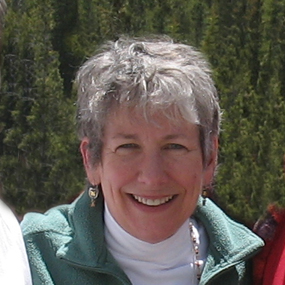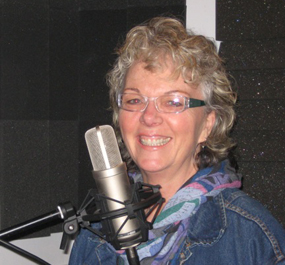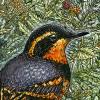

Join BirdNote tomorrow, November 30th!
Illustrator David Sibley and actor H. Jon Benjamin will face off in the bird illustration battle of the century during BirdNote's Year-end Celebration and Auction!
September 27th marks the 50th anniversary of the publication of Silent Spring by Rachel Carson. The book awakened the public to the dangers of DDT and other pesticides. But many weren't ready to listen. Her opponents called her "an hysterical woman." Even people who could see the effects of the products on songbirds couldn't believe that something so harmful would actually be on the market. But Rachel Carson - and others who followed her - persevered. In 1972, DDT was banned for agricultural use in the US. Over time, bird populations recovered. Silent Spring - and Rachel Carson - improved the world for birds, and for people.
BirdNote®
50th Anniversary of the Publication of Silent Spring
Written by Ellen Blackstone
This is BirdNote!
[Mixed medley of spring birdsong at dawn]
Today marks the 50th anniversary of the publication of Silent Spring. Rachel Carson’s book awakened the public to the dangers of DDT and other pesticides.
Rachel Carson herself called the chemicals “biocides,” because she recognized that they killed not only the pests they were meant for, but other creatures up the food chain as well.
Although she was a marine biologist, she paid close attention to other aspects of the world around her. She understood the interconnectedness of nature.
“Man’s attitude toward nature is today critically important simply because we have now acquired a fateful power to alter and to … destroy nature. But man is part of nature, and his war against nature is, inevitably, a war against himself.” *
But many weren’t ready to listen. Her opponents called her “an hysterical woman.” Even people who could see the effects of the products on songbirds couldn’t believe that something so harmful would actually be on the market.
But Rachel Carson persevered, and in 1972, DDT was banned for agricultural use in the United States.
Over the next few decades, bird populations – and in particular, raptors – recovered. Ospreys, Bald Eagles, and Peregrine Falcons came off the Endangered Species List.
Silent Spring - and Rachel Carson – improved the world for birds and people.
[Go out with mixed medley of birdsong]
###
Dawn song recorded by Martyn Stewart of naturesound.org.
* http://www.youtube.com/watch?v=vbtp2B-IFmw
Producer: John Kessler
Executive Producer: Chris Peterson
© 2012 Tune In to Nature.org September 2012 Narrator: Mary McCann
ID# carsonr-02-2012-09-27




